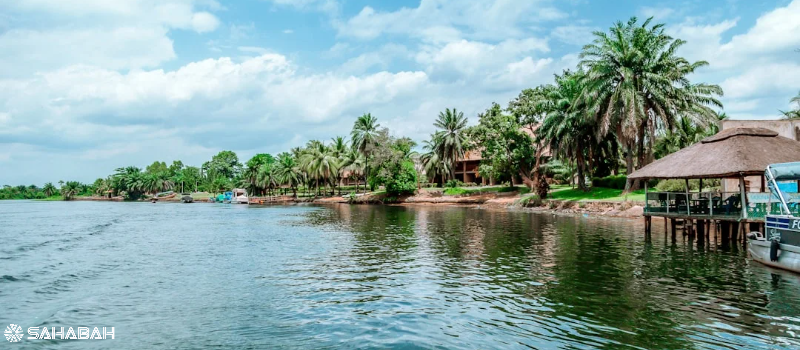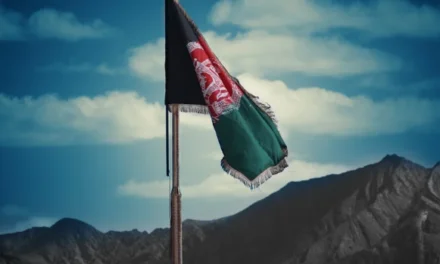The relationship between Ghana and Israel, two nations situated on opposite ends of the world, has been a subject of intrigue and debate. Despite their geographical distance, the dynamics between these countries have been shaped by a complex interplay of historical, political, and ideological factors. This article delves into the nuances of Ghana’s stance on Israel, examining the extent of support (or lack thereof) across various spheres.
To truly comprehend the current state of affairs, it is essential to explore the historical context that has influenced this relationship over the decades. From the initial establishment of diplomatic ties in the post-colonial era to the subsequent souring of relations and eventual restoration, the trajectory of Ghana-Israel relations has been anything but straightforward.
A Brief History of Ghana-Israel Relations
Establishing Diplomatic Ties in the Post-Colonial Era
In 1957, shortly after gaining independence, Ghana became one of the first African nations to recognize the State of Israel. This move paved the way for the establishment of diplomatic relations and the opening of embassies in both countries. During the early years, Ghana and Israel engaged in cooperation across various sectors, including agriculture and development.
The Souring of Relations in the 1970s
However, the relationship took a significant turn in the 1970s when Ghana, under the regime of General Acheampong, shifted towards a pro-Palestinian stance. In 1973, Ghana severed diplomatic ties with Israel, a decision influenced by the growing pan-Africanism movement and the increasing influence of Arab states in the region.
Examining Ghana’s Current Stance on Israel
Diplomatic and Political Support
After a period of strained relations, Ghana and Israel restored diplomatic ties in the 1990s, marking a new chapter in their bilateral relations. Since then, Ghana’s voting patterns at the United Nations regarding Israel-related resolutions have been closely watched, providing insights into the country’s political stance.
High-level visits and statements from Ghanaian officials have also shed light on the extent of diplomatic support for Israel. However, it is important to note that Ghana’s position has often been nuanced, balancing its ties with Israel while maintaining strong relationships with Arab states and the Palestinian cause.
Economic and Trade Cooperation
Despite the political complexities, Ghana and Israel have continued to explore economic and trade opportunities. Bilateral trade agreements and investment initiatives have facilitated collaboration in sectors such as agriculture, technology, and education. However, challenges remain, and the potential for further growth in economic cooperation is yet to be fully realized.
Cultural and People-to-People Ties
Beyond the political and economic realms, Ghana and Israel have also fostered cultural and people-to-people ties. The presence of Ghanaian and Israeli communities in each country has facilitated cultural exchange programs and initiatives. Additionally, shared values and common interests have contributed to the strengthening of these bonds.
Ghana’s Balancing Act: Navigating Regional and Global Dynamics
Influence of the African Union and Arab States
As a member of the African Union, Ghana’s stance on Israel is influenced by the broader regional dynamics. The African Union’s position on the Israeli-Palestinian conflict has often been a point of contention, with some member states advocating for a more pro-Palestinian stance. Additionally, Ghana must navigate the pressure exerted by Arab states, which have historically been vocal supporters of the Palestinian cause.
The Impact of the Israeli-Palestinian Conflict
The ongoing Israeli-Palestinian conflict has undoubtedly shaped Ghana’s approach to its relations with Israel. While Ghana has called for a two-state solution and peace efforts, the complexities of the conflict have made it challenging to maintain a balanced stance. The implications of Ghana’s position on this issue extend beyond its bilateral ties with Israel and have the potential to impact its relations with Arab states and other regional actors.
Voices from Ghana: Public Opinion and Perspectives
Ghanaian Civil Society and Advocacy Groups
Within Ghana, various civil society organizations, human rights groups, religious institutions, and non-governmental organizations (NGOs) have voiced their perspectives on the country’s support for Israel and the Palestinian cause. These voices have contributed to public debates and have influenced the government’s approach to this sensitive issue.
The Role of the Ghanaian Media
The Ghanaian media has played a significant role in shaping public opinion on Ghana’s relations with Israel. The coverage of this topic in local and national media outlets has influenced the narratives surrounding the issue, often reflecting the diverse viewpoints present within Ghanaian society.
Conclusion
In conclusion, Ghana’s stance on Israel is a complex and multifaceted issue that defies simple categorization. While the two nations have maintained diplomatic relations and explored economic and cultural cooperation, Ghana’s position has been shaped by regional dynamics, the influence of the African Union and Arab states, and the ongoing Israeli-Palestinian conflict.
As a responsible member of the international community, Ghana has sought to balance its ties with Israel while advocating for a peaceful resolution to the conflict and supporting the rights of the Palestinian people. However, this balancing act has often been challenging, requiring careful navigation of competing interests and pressures.
Moving forward, it is crucial for Ghana to continue engaging in constructive dialogue and diplomacy, fostering understanding and promoting peaceful coexistence in the region. By maintaining an open and nuanced approach, Ghana can contribute to the pursuit of lasting peace and stability, while upholding its principles and values on the global stage.
FAQ: Does Ghana Support Israel?
Ghana has maintained a neutral stance on the Israel-Palestine conflict, preferring to prioritize diplomatic relations with both parties rather than taking sides.
What is the status of the bilateral relations between Ghana and Israel?
Ghana and Israel have historically had friendly relations, with cooperation in various fields such as agriculture, technology, and security.
Has Ghana shown solidarity with Palestine?
Ghana has expressed solidarity with the Palestinian people and supported their right to self-determination and statehood.
Is there any official boycott of Israeli goods or services in Ghana?
As of now, there is no official boycott of Israeli goods or services in Ghana.
What is the stance of Ghana on the Israeli occupation of Palestine?
Ghana has called for a peaceful resolution to the Israeli-Palestinian conflict, advocating for the rights and well-being of both Israelis and Palestinians.
How does Ghana view the situation in Gaza and the West Bank?
Ghana has expressed concern over the humanitarian situation in Gaza and the West Bank and has called for efforts to improve the lives of Palestinians living in those areas.
Has Ghana taken any official stance on the issue of apartheid in Israel?
Ghana has reaffirmed its commitment to the principles of equality, non-discrimination, and human rights and has called for actions to address any forms of discrimination or oppression in the region.





